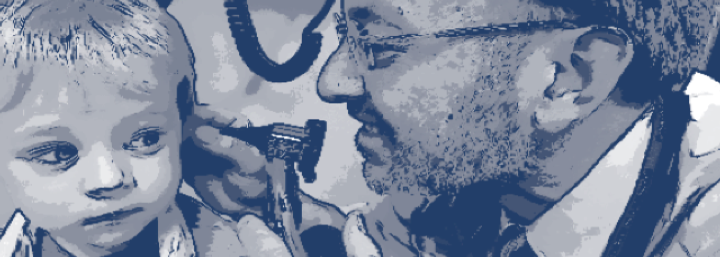
If your child has the symptoms of an anxiety disorder it is probably just that, an anxiety disorder. However, most parents want to pay a visit to the pediatrician to rule out any medical conditions and I would certainly recommend that. Let me qualify my comments by saying I am NOT a medical doctor. Nothing I write should be considered a medical opinion. That being said I do want to make a list of possible medical reasons for anxiety in children. Anxiety includes powerful reactive changes in the nervous system including increased heart rate, changes in breathing, slow down of digestive system, etc. The aspects of this are similar to many medical symptoms and sometimes it is hard to tell one from the other.
Possible medical issues that present with anxiety symptoms are:
Medications
Has you child started on a medication or changed the dose within the last few weeks? Did any of these symptoms appear or get worse within a week or so?
- Feelings of inner restlessness (can’t hold still, crawling out of skin) called akathisia can be a side effect of SSRI’s (e.g., Prozac, Zoloft, Lexapro), antipsychotics like Abilify or Resperidone, Effexor, antihistamines, stimulants (e.g., Adderall), some anti-emetics like Reglan and drug withdrawal from numerous medications. A more complete list can be found here.
- Bronchodilators used for asthma can cause side effects like stomach distress, rapid or irregular heart rate, muscle cramps, and nervous or jittery feelings.
- Over the counter (OTC) agents like Tagamet, Zantac, Pepcid and Axid can cause light-headedness, muscle pain and irregular heart rate.
- Excessive use of caffeine and energy drinks/aids can cause symptoms like breathing problems, dizziness, rapid heart beat, diarrhea, sleeping problems, etc.
Sometimes medications can cause unexpected side effects that are not typical and even unlikely. It is worth considering if an unexplained symptom starts after the medication.
Infections
PANDAS or PANS. Can result in rapid onset of OCD symptoms among other things. Follows soon after an infection. If really intense anxiety symptoms start out of the blue and persist following an illness (strep throat especially) please mention this to your pediatrician. Usually the symptoms present as OCD or tics. Sometimes it can look like ADHD, separation anxiety, striking mood changes, joint pain, bed-wetting, or changes in hand-writing.
Gastrointestinal
IBS and GERD are associated with anxiety. They may precipitate anxiety and also get worse from anxiety. Acid Reflux (associated with GERD) can present as anxiety. A patient was telling me about past psychological treatment. It included learning to breathe (diaphragmatically) and relax. He told me it was because he sometimes felt he might choke or that his throat was closing. (That is, in fact, a possible symptom of anxiety.) Psychological treatment for this was ineffectual. Eventually, he was correctly diagnosed with acid reflux.
Cardiovascular
Irregular heart rate that is too fast (tachycardia) or slow (bradycardia) can cause anxiety or even panic. Mitral valve prolapse can cause racing or irregular heartbeat, dizziness, lightheadedness, breathing difficulty, fatigue and chest pain. For most people this is not life threatening and many people don’t even know they have it.
Vestibular
Ear Related disorders can be connected to anxiety. Labyrinthitis (inner ear problem) may be a factor because it can result in balance problem or vertigo (feeling dizzy). I once treated a young teen with chronic nausea and vomiting. I asked if he was ever dizzy and if that might cause the nausea. He said he thought it might sometimes. I suggested he see an Ear, Nose and Throat doctor (gastrointestinal issues had been checked already) and he discovered he had a small round plastic object (airsoft pellet, I think) in each ear. (As you can imagine this was a complete surprise to everyone! And kinda funny honestly). Probably been there for 7 or 8 years. Removing them resulted in a substantial improvement in the nausea. This was, of course, a rare event but if there is dizziness, ringing in the ears or sinus issues it would be worth a checkup.
Endocrine and Metabolic
Most of these are rare. These include diabetes, hyperthyroidism, hypoglycemia, hyperglycemia, hyperparathyroidism, and Cushing’s disease.
Respiratory
Asthma, pneumonia, pneumothorax and Pulmonary embolus can cause anxiety symptoms. Most likely to result in breathing problems or hyperventilating.
Hematologic
Anemia and Acute intermittent porphyria are associated with anxiety symptoms.
Neurologic
Post-concussive states, and Temporal lobe epilepsy.
Here is a helpful list of possible medical problems listed by symptom.
This is certainly not an exhaustive list. I am curious if you have other issues to add here. Please comment if you do.
Most of the outline for this came from: **Rockhill C, Kodish I, DiBattisto C, Macias M, Varley C, Ryan S. Anxiety disorders in children and adolescents. Curr Probl Pediatr Adolesc Health Care. 2010 Apr;40(4):66-99. doi: 10.1016/j.cppeds.2010.02.002.

Kit says
Hi, after reading this remarkable piece of writing i am also happy to share my experience here with
colleagues.
Jana says
Excellent!